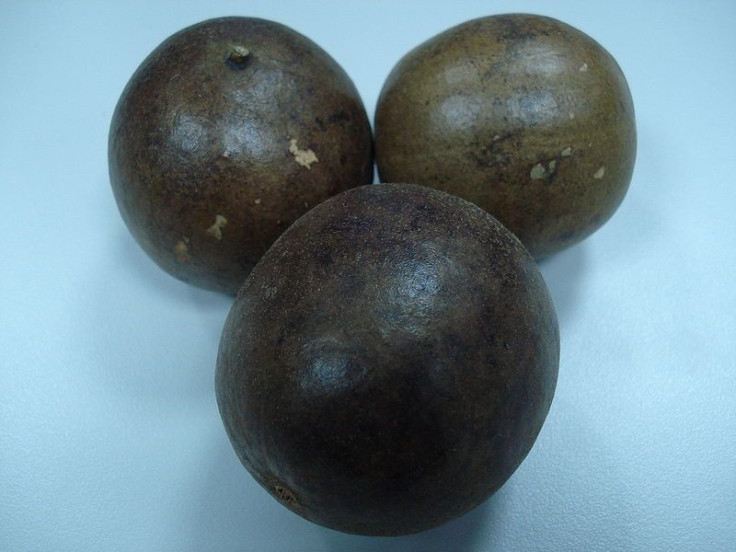Monk Fruit: First Healthy Artificial Sweetener That Also Tastes Great?

While aspartame, the artificial sweetener used to make most Coca-Cola products, has been approved by both the Food and Drug Administration (FDA) and the American Beverage Association, most health care professionals warn against heavy consumption of this sugar substitute. Now monk fruit, a melon cultivated by Buddhist monks at one time or another in certain types of China, is gaining popularity as a flavorsome and healthier alternative to aspartame.
Monk fruit, also known as luo han guo fruit, is traditionally grown in the forested mountains of southern China, Reuters reported. Its antioxidant and vitamin properties have made it a popular remedy for anything from a sore throat to diabetes, and its naturally sweetened flavor makes its dry form a practical ingredient for soups and teas. Manufacturers report that one gram of monk fruit extract is equal to eight teaspoons of sugar.
The FDA first granted monk fruit approval back in 2010; however, Procter & Gamble Co. first patented the fruit for a possible sugar and artificial sweetener alternative back in 1995. Today, the New Zealand company, BioVittoria, is leading the production of monk fruit-derived ingredients through a license obtained from Procter & Gamble. BioVittoria received the FDA’s Generally Recognized As Safe (GRAS) approval for its monk fruit concentrate product “Fruit-Sweetness” in 2010.
In its pure form, monk fruit is considered 300 times sweeter than sugar. According to BioVittoria’s website, Fruit-Sweetness is around 150 times sweeter than sugar. Fruit-Sweetness, marketed as “a truly natural, zero calorie, high intensify sweetener,” is currently the only product derived from monk fruit to receive the FDA’s GRAS approval.
Coca-Cola products are currently sweetened by stevia, a low-calorie sweetener that is “generally recognized as safe” by the FDA. Although stevia is considered a healthier option compared to the perceivably dangerous aspartame, it has also been criticized for its bitter taste. California-based Zevia recently launched its brand of zero-calorie sodas, sweetened with a mixture of monk fruit extract and stevia.
"We feel like we've really cracked the code," Zevia CEO Paddy Spence told Reuters. "Using the two side by side, we were able to get a higher level of sweetness without the bitterness.”
Companies like BioVittoria and Zevia may be at the forefront of the monk fruit market, but there is one dilemma any potential manufacturer of this fruit will run into: a Chinese law that prevents monk fruit from being grown outside of the country. This combined with the intricate process involved with monk fruit extraction makes it a pricey commodity. With the continued decline of Coca-Cola sales, soft drink companies may have to pony up extra coin to afford this healthier alternative to the dreaded aspartame.
Published by Medicaldaily.com



























